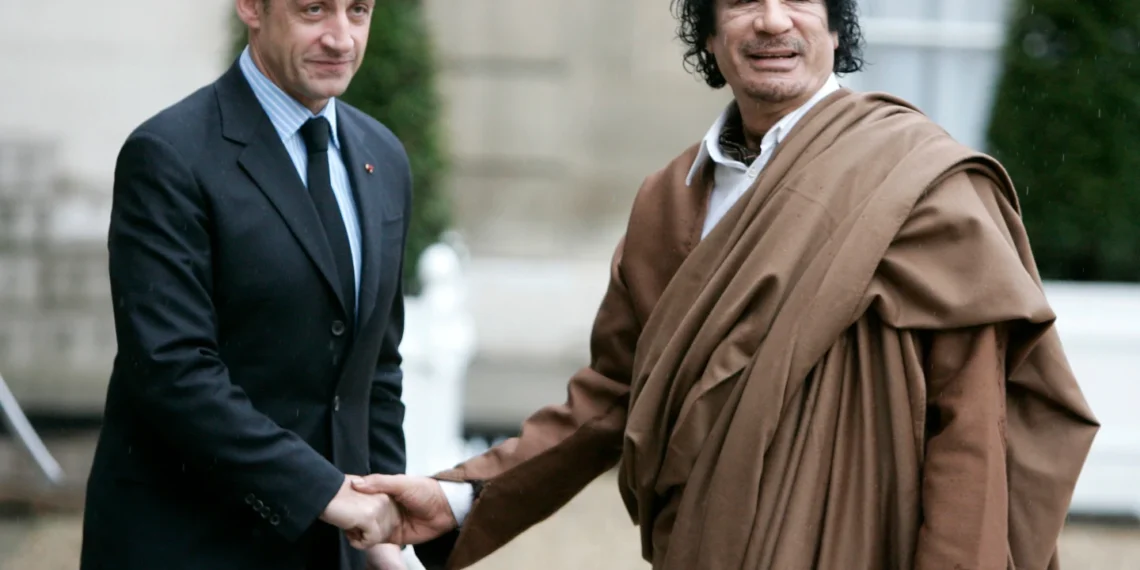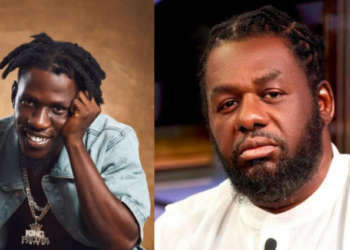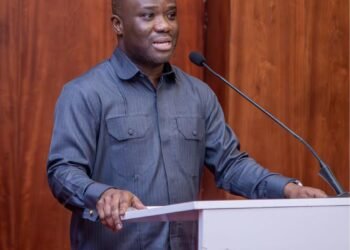The ongoing Sarkozy Libya corruption trial has not only reignited France’s reckoning with past diplomatic decisions but also peeled back the layers of a shadowy chapter involving Libya’s late leader Muammar Gadhafi.
As the trial of former President Nicolas Sarkozy draws to a close, emotional testimony from families of terror victims has sharpened public attention on what many now believe may have been a morally fraught back-channel diplomacy.
On Tuesday, the high-stakes legal proceedings are set to conclude with closing arguments from Sarkozy’s legal team. A verdict will be handed down at a later date. French prosecutors are seeking a seven-year prison term for the 70-year-old ex-leader, who has served as president from 2007 to 2012. Sarkozy has denied any wrongdoing.
Throughout the Sarkozy Libya corruption trial, key moments have centered on the early 2000s, when Gadhafi’s Libya was making overtures to mend its global image after decades of being cast as a rogue state. These efforts included offering billions in compensation and assuming responsibility for deadly terror attacks.
Central to the court’s proceedings is whether Sarkozy and close government associates compromised justice for victims of Libyan-sponsored terrorism in pursuit of economic and political ties with Gadhafi. The courtroom heard from French relatives of victims of the 1989 UTA flight bombing over Niger, which killed 170 people, including 54 French nationals. Many expressed a profound sense of betrayal.
Nicoletta Diasio, whose father perished in the UTA bombing, posed a haunting question in court: “What did they do with our dead?” She suggested the possibility that victims’ memories “could have been used for bartering” between French and Libyan officials.

Accusations Stir Painful Historical Memories
Libya was long held responsible for two infamous airline bombings: the 1988 Lockerbie disaster, where a bomb tore through Pan Am flight 103 over Scotland, killing 270 people, and the 1989 UTA flight 772 bombing. Both incidents prompted extensive French and U.S. investigations that pointed to Libyan involvement.
After decades of isolation, Libya began seeking a way back into the international fold. In 2003, Gadhafi accepted responsibility for both bombings and pledged billions in compensation. He also renounced his nuclear weapons ambitions, prompting the West to gradually lift sanctions.
Sarkozy’s critics argue that his administration may have overlooked this violent legacy for strategic gain. In 2007, Gadhafi was welcomed to Paris for a lavish five-day state visit. His symbolic Bedouin tent erected near the Elysee Palace remains an enduring image for many French citizens — one that stirs discomfort rather than diplomacy.
During the trial, the former president defended the decision, calling it a gesture following Libya’s release of five Bulgarian nurses and a Palestinian doctor, who had spent over eight years in Libyan prisons. They had been convicted of deliberately infecting children with HIV, a charge the medics vehemently denied.
Their release, brokered in part by Sarkozy’s then-wife Cecilia and European Union officials, was seen as a pivotal diplomatic breakthrough. The medics’ return to Bulgaria marked the final hurdle in Libya’s reacceptance into the global community.
The next day, Sarkozy flew to Tripoli to meet Gadhafi, a trip he justified in court by declaring his “pride” in helping to free the medics. He added that their release “wouldn’t have been possible without engaging with Gadhafi.”
However, families of terror victims argue that this diplomatic reengagement came at too high a price. Their courtroom testimonies reflected a belief that their pain was minimized or ignored to facilitate lucrative deals and geopolitical positioning.
Sarkozy, in his defense, stated he has “never ever betrayed” the families of victims and dismissed accusations that he used their tragedies as diplomatic currency.
As the Sarkozy trial reaches its final moments, it continues to stir uncomfortable questions about how far democratic leaders should go in dealing with authoritarian regimes. The French public and the world now await the court’s verdict on a case that could permanently reshape Sarkozy’s legacy.
READ ALSO: Gov’t Pursues Strategic Partnerships to Establish Ghana’s National Airline




















